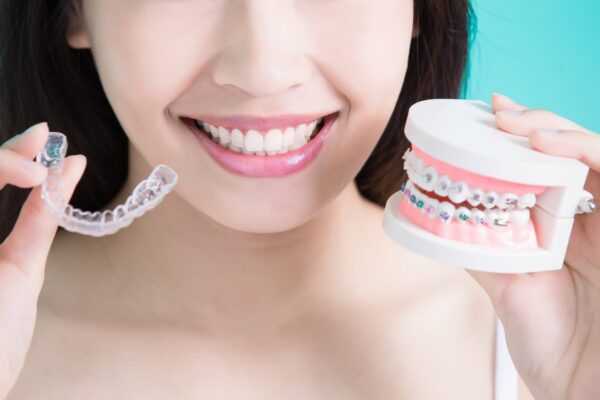WHAT IS DENTAL HERITAGE?

Some many traits and characteristics are inherited from parents to children. For example, transmitting certain genes is important to a person’s physical appearance. However, recent studies have shown dental care; however, recent studies have shown that dental inheritance is another factor to consider.
According to dental experts, there is a close relationship between genetics and dental health. As a result, there are certain predispositions to suffer from certain oral diseases, which when known which, when known, can be avoided.
While inherited conditions or physical characteristics cannot be avoided in most cases, their potential effects may be treated in advance. Let’s see how dental heredity influences the most common oral health problems.
Table of Contents
What is dental heritage?
Dental ethical genetic inheritance is genetic information that determines the size, shape and the genetic information that determines the size, shape, and arrangement of teeth and is passed from parents to offspring, giving the latter a set of characteristics. And gives the offspring several characteristics. It is an element that can benefit the offspring, but also a complex question when dental inheritance leads to certain oral health problems.
In the oral area, certain pathologies are inherited within the family. Crooked teeth, malocclusion problems, cavities, and a greater tendency to suffer from periodontal disease are just a few.
What is inherited from parents cannot be changed, as it is part of each person’s genetic material. But, on the other hand, it is possible to find out about it to act in time before the problems of dental inheritance become apparent.
How do genetics influence dental problems?
A person’s dental heredity, that is, the physical characteristics they inherit from their parents, can determine the size and shape of the teeth, the quality of the enamel, the malformations of the tissues, and the location of teeth, and even redundant or missing teeth. And even supernumerary or missing teeth.
Cavities and periodontal diseases are not hereditary as such. What can affect children are the oral conditions they inherit from their parents, which makes them more susceptible to the consequences. Resulting in a greater predisposition to suffer the consequences.
Besides dental heredity, many other factors can influence the health of your teeth and gums. Do you know why visiting the dentist at least once a year is so important?
How do genetics determine if you have a dental problem?
Although it is a conditioning factor, genetic inheritance does not directly influence the development of dental problems such as caries or periodontitis. Such as caries or periodontitis. There are a lot of internal and external factors that play a role.
For this reason, maintaining good oral hygiene and meticulous care of healthy teeth and gums is especially essential for people with a greater genetic predisposition.
At the other extreme, we have the problems of dental crowding, diastasis or oral malformations, which have a direct genetic influence.
If there is a family history, the earlier children start seeing the dentist, the better the chances of detecting and properly treating these disorders. To detect and treat these disorders correctly.
Dental problems that can be inherited
What conditioning factors influence oral health and characteristics inherited from parents to children? As we have already mentioned, they are numerous and very variable:
Periodontitis
Periodontitis is the inflammation of periodontal tissue due to infection caused by bacteria in the mouth. Good hygiene habits can prevent the gums from suffering these harmful effects and keep the tissues strong and healthy.
Those people with more sensitive periodontal tissue should not neglect the hygiene and care of their gums should not neglect the hygiene and care of their gums so that these problems do not occur.
Enamel quality
Not everyone has the same thickness of enamel on their teeth. It is a genetic trait and, therefore, part of the dental heredity transmitted within the family, which is transferred within the family.
Some people get cavities more often than others because their enamel deteriorates more easily. What can be done in these cases? Very simple: keep bacteria in the oral cavity at bay, and prevent them from forming a biofilm on the surface of the teeth, which leads to cavities.
Composition of saliva
Saliva plays a very important role both in the digestion process and in the protection of the oral cavity. By maintaining a constant pH, saliva cleans the mouth and kills most bacteria that cause tooth decay. Responsible for dental caries.
Similarly, there are people whose saliva pH is different. A slightly more acidic or alkaline pH level may not do its job properly, promoting bacterial growth.
Orthodontic problems
When it comes to dental inheritance, the problem most frequently detected by the dentist is the misalignment of the teeth. Therefore, occlusion correction is not only done for aesthetic reasons but also to promote the good function of each tooth. But also to promote the proper function of each tooth.
Children must follow progressive control to act on time when there is a family history of orthodontic problems. For example, it is easier to correct the position of the teeth during childhood when the structures and tissues are developing. To get perfect teeth alignment, visit Virginia dental care.
The importance of inheriting good dental hygiene habits
The dental inheritance that passes from parents to children is not just a matter of genetics. From an early age, children look to their elders as the best example of dental hygiene. Habits.
Children must learn from an early age to brush their teeth and care for their teeth and gums, thereby inheriting this healthy habit. Inherit this healthy habit. Parents, along with the dentist, are primarily responsible for teaching the younger members of the household to prevent any type of oral discomfort or disease.
Dental health and dental heritage are two terms that go hand in hand. Either way, prevention is the best solution. By taking care of the oral hygiene of the whole family and having regular check-ups at the Virginia family dentist, it is much easier to have a healthier and more beautiful smile.
Click here to read more valuable blogs.








